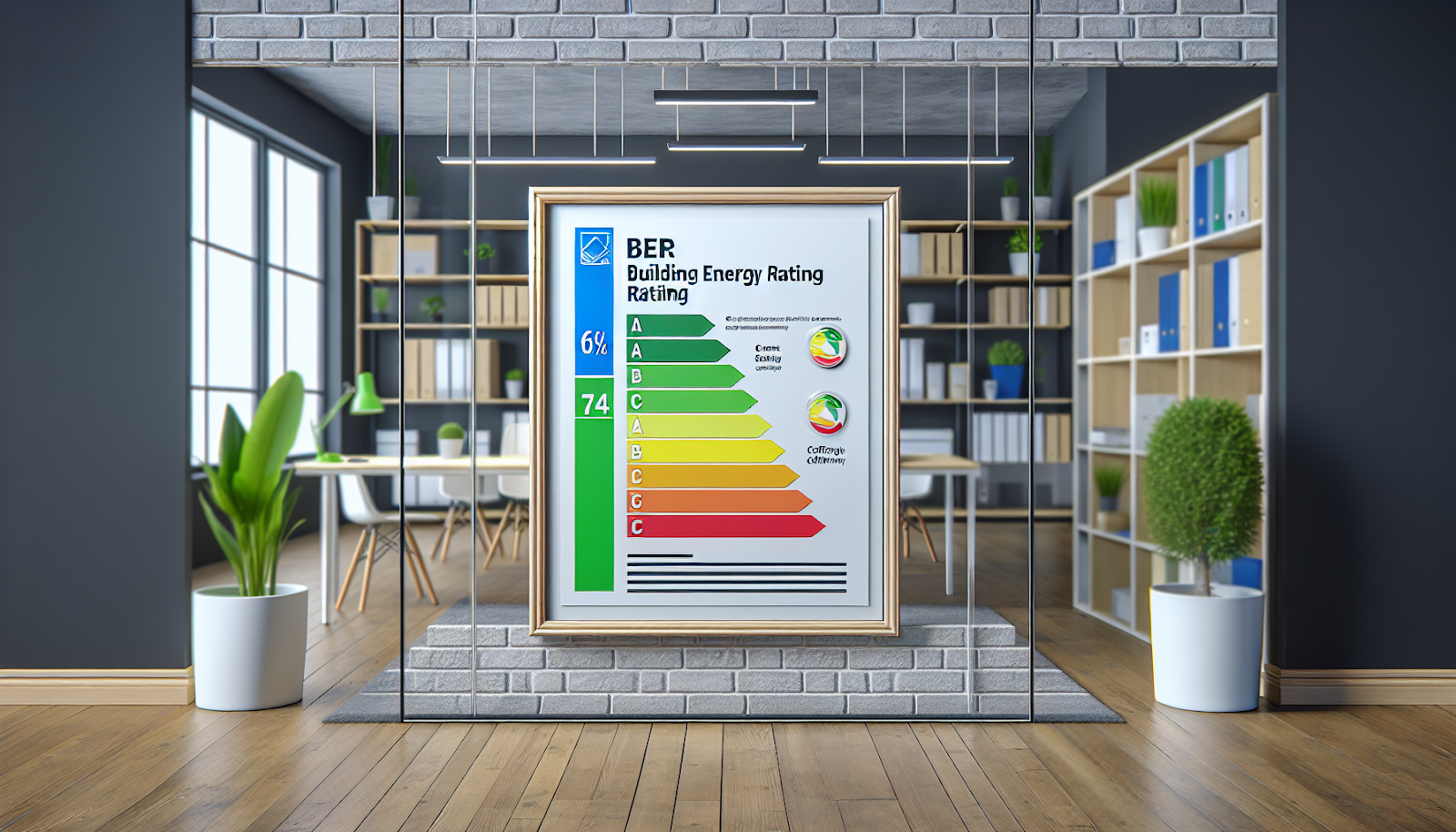As a property owner, it’s crucial to understand the importance of a Building Energy Rating (BER) certificate. This certificate provides valuable information about your property’s energy efficiency and can help you make informed decisions about improving its performance. In this comprehensive guide, we’ll explore the reasons why you need a BER cert and how it can benefit you and your property.
What is a Building Energy Rating Certificate?
A Building Energy Rating (BER) certificate is a document that assesses the energy efficiency of a property. It takes into account factors such as insulation, heating systems, lighting, and ventilation to determine how much energy the property consumes and how much carbon dioxide it emits.
How is a BER Certificate Calculated?
The calculation of a BER certificate involves a thorough assessment of your property’s energy performance. A certified BER assessor will visit your property and collect data on various aspects, including:
- Building fabric (walls, roof, floors, windows, and doors)
- Heating and hot water systems
- Ventilation and air conditioning systems
- Lighting
- Renewable energy systems (if applicable)
The assessor will then input this data into a specialized software program that calculates the property’s energy efficiency rating. The rating is expressed on a scale from A to G, with A being the most efficient and G being the least efficient.
Why is a BER Certificate Important?
A BER certificate is essential for several reasons:
1. Legal Requirement
In many countries, including Ireland and the United Kingdom, it is a legal requirement to have a BER certificate when selling or renting a property. Failure to provide a BER certificate can result in fines and legal consequences.
2. Energy Efficiency Awareness
A BER certificate provides valuable information about your property’s energy efficiency. It helps you understand how much energy your property consumes and identifies areas where improvements can be made. By making energy-efficient upgrades, you can reduce your energy bills and improve your property’s overall performance.
3. Increased Property Value
Properties with higher BER ratings are often more attractive to potential buyers or tenants. A high BER rating indicates that the property is energy-efficient, which can translate to lower energy bills and a more comfortable living environment. As a result, properties with good BER ratings may command higher sale prices or rental rates.
4. Environmental Impact
By understanding your property’s energy efficiency through a BER certificate, you can take steps to reduce its environmental impact. Improving energy efficiency helps reduce greenhouse gas emissions and contributes to a more sustainable future.
How to Obtain a BER Certificate
Obtaining a BER certificate is a straightforward process:
- Find a certified BER assessor in your area.
- Schedule an assessment of your property.
- Provide access to your property for the assessor to collect the necessary data.
- Receive your BER certificate, which is valid for 10 years.
It’s important to note that BER certificates are valid for 10 years, after which a new assessment will be required to update the certificate.
Benefits of Improving Your Property’s BER Rating
Improving your property’s BER rating offers several benefits:
1. Lower Energy Bills
By making energy-efficient upgrades, such as improving insulation, installing energy-efficient heating systems, or using LED lighting, you can significantly reduce your energy consumption and lower your energy bills.
2. Increased Comfort
Energy-efficient properties often provide a more comfortable living environment. Proper insulation and efficient heating systems help maintain a consistent temperature throughout the property, reducing drafts and cold spots.
3. Reduced Carbon Footprint
Improving your property’s energy efficiency helps reduce its carbon footprint. By consuming less energy, you contribute to lower greenhouse gas emissions and a more sustainable future.
4. Government Incentives
In some cases, governments offer incentives or grants for property owners who make energy-efficient improvements. These incentives can help offset the cost of upgrades and make them more affordable.
Common Energy-Efficient Upgrades
There are several common energy-efficient upgrades that property owners can consider to improve their BER rating:
1. Insulation
Improving insulation in walls, roofs, and floors can significantly reduce heat loss and improve energy efficiency. Proper insulation helps maintain a comfortable temperature inside the property, reducing the need for excessive heating or cooling.
2. Heating Systems
Upgrading to energy-efficient heating systems, such as condensing boilers or heat pumps, can greatly reduce energy consumption and lower energy bills. These systems are designed to operate more efficiently and provide better temperature control.
3. Windows and Doors
Replacing old, drafty windows and doors with energy-efficient alternatives can help reduce heat loss and improve insulation. Double or triple-glazed windows and insulated doors can make a significant difference in energy efficiency.
4. Lighting
Switching to energy-efficient lighting, such as LED bulbs, can reduce electricity consumption and lower energy bills. LED bulbs last longer than traditional incandescent bulbs and generate less heat, making them a more sustainable choice.
5. Renewable Energy Systems
Installing renewable energy systems, such as solar panels or wind turbines, can help generate clean energy and reduce reliance on the grid. These systems can offset energy costs and contribute to a more sustainable property.
Frequently Asked Questions
1. How much does a BER certificate cost?
The cost of a BER certificate varies depending on the size and type of property. On average, the cost ranges from €100 to €300. However, it’s important to compare prices from different certified BER assessors to find the best value for your specific property.
2. How long does a BER assessment take?
A BER assessment typically takes 1-2 hours, depending on the size and complexity of the property. The assessor will need access to all areas of the property, including the attic and any outbuildings.
3. Can I improve my BER rating without expensive upgrades?
Yes, there are several low-cost measures you can take to improve your BER rating. These include:
- Sealing air leaks around windows and doors
- Installing draught excluders
- Insulating hot water pipes and tanks
- Using energy-efficient appliances
- Turning off appliances and lights when not in use
4. Is a BER certificate the same as an Energy Performance Certificate (EPC)?
Yes, a BER certificate is the equivalent of an Energy Performance Certificate (EPC) in Ireland. In the United Kingdom, the term EPC is used instead of BER.
5. How do I find a certified BER assessor?
You can find a certified BER assessor through the Sustainable Energy Authority of Ireland (SEAI) website. The SEAI maintains a register of certified assessors, allowing you to search for assessors in your area.
Conclusion
Obtaining a Building Energy Rating (BER) certificate is crucial for property owners who want to understand and improve their property’s energy efficiency. A BER cert provides valuable information about energy consumption, identifies areas for improvement, and can help increase the property’s value and attractiveness to potential buyers or tenants.
By making energy-efficient upgrades and following the recommendations provided in the BER certificate, property owners can reduce their energy bills, improve comfort, and contribute to a more sustainable future. With the legal requirement for BER certificates in many countries, it’s essential for property owners to prioritize obtaining and maintaining a valid certificate.
Remember, investing in energy efficiency not only benefits your property but also contributes to a greener and more sustainable world. Take action today and schedule a BER assessment to unlock the full potential of your property’s energy performance.
Stay in touch to get more news & updates on Essential Tribune.Com!








